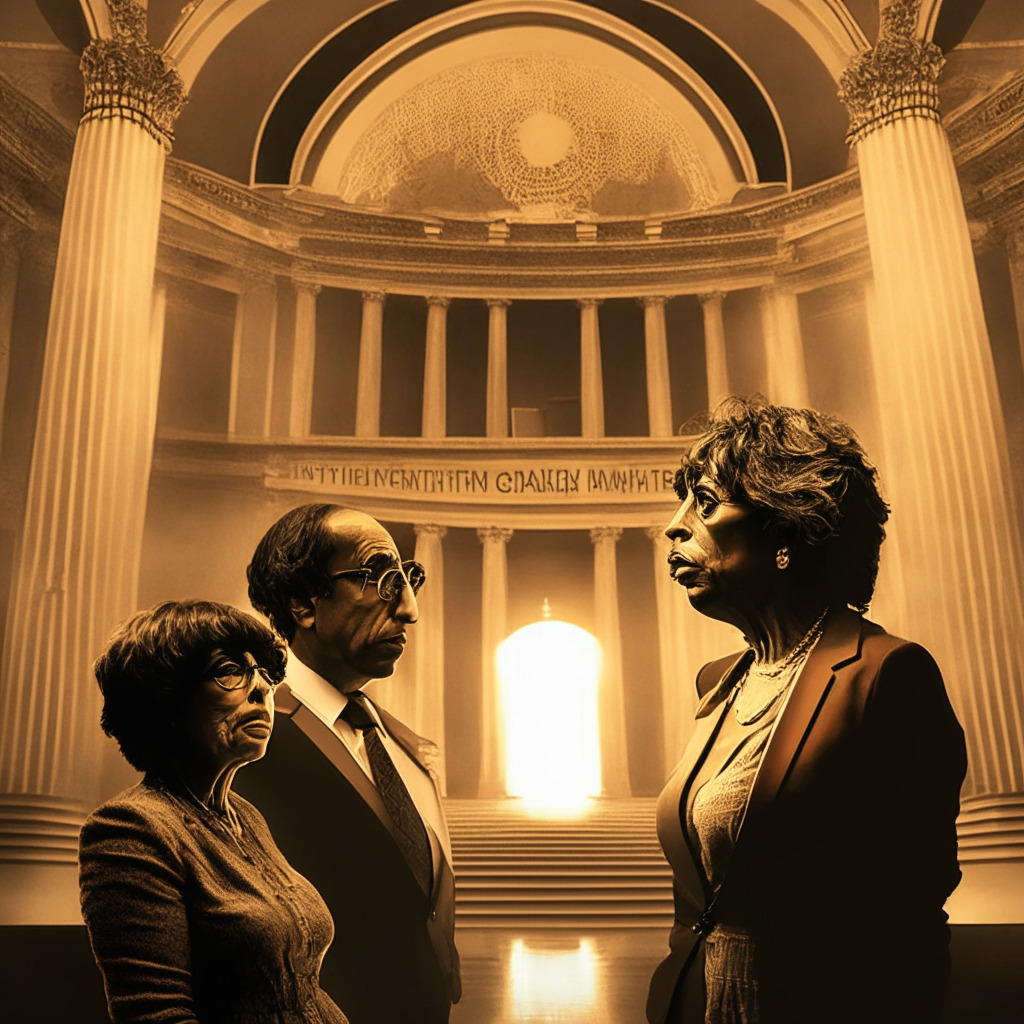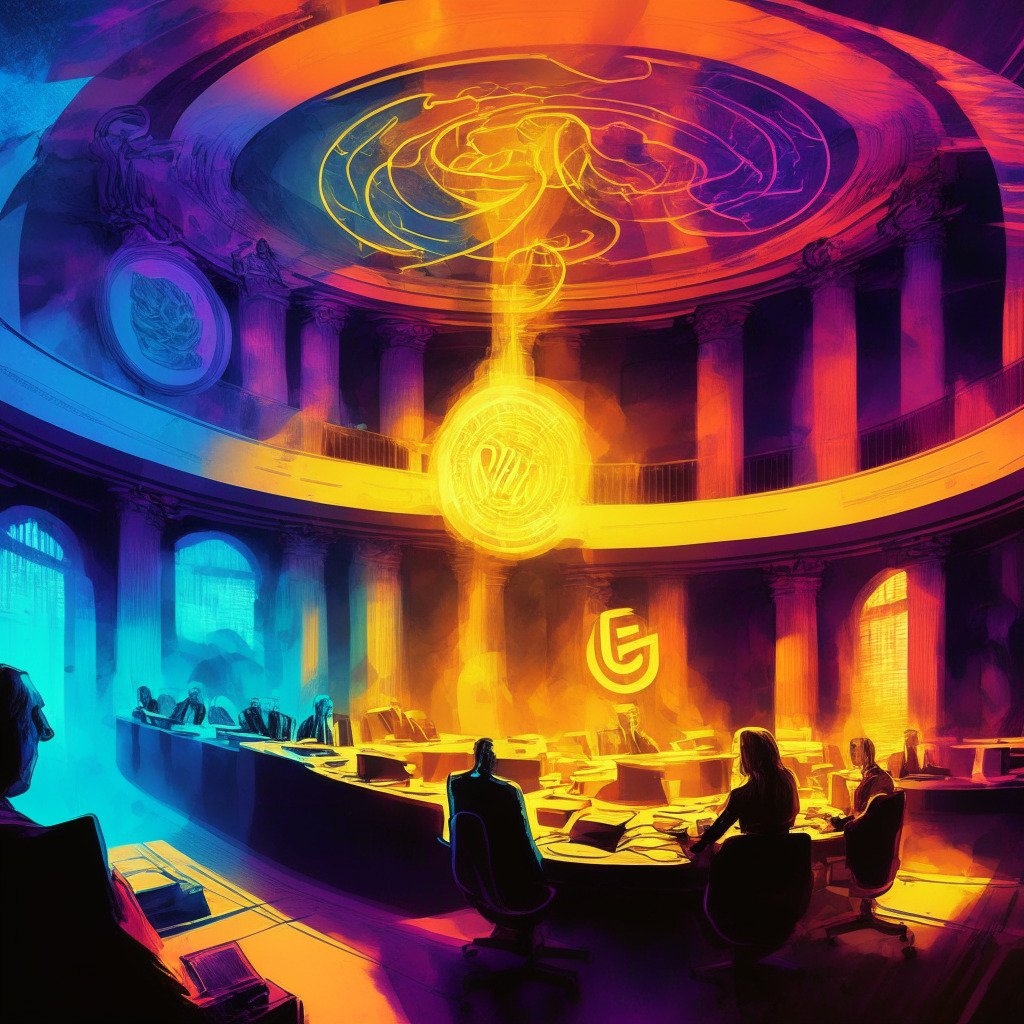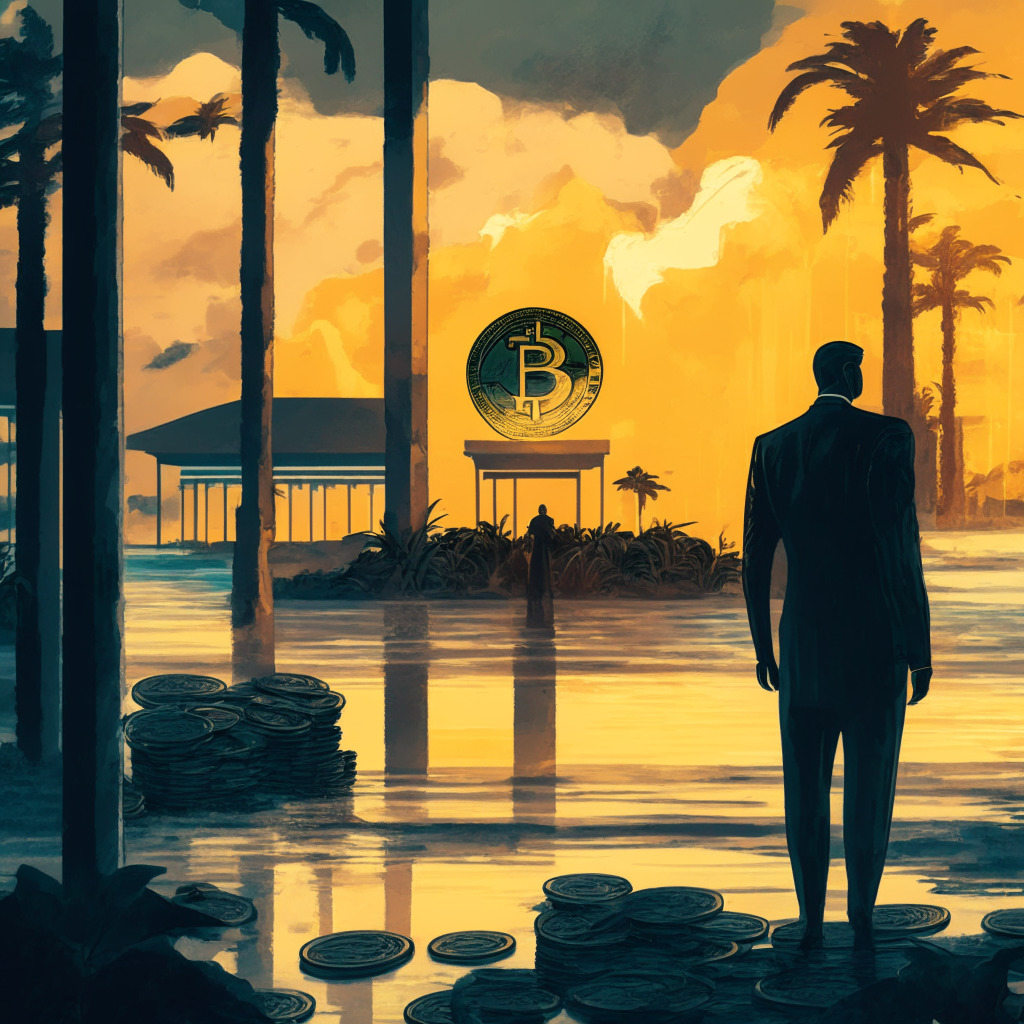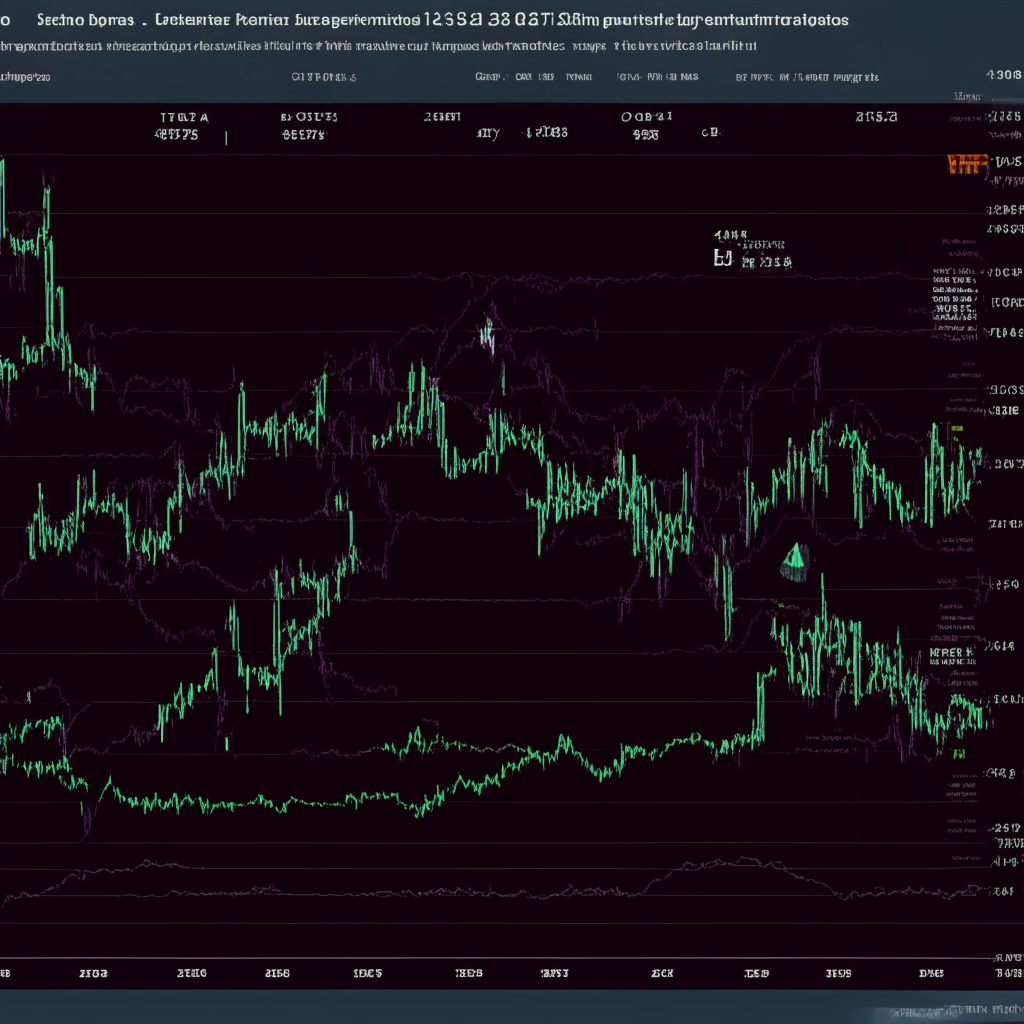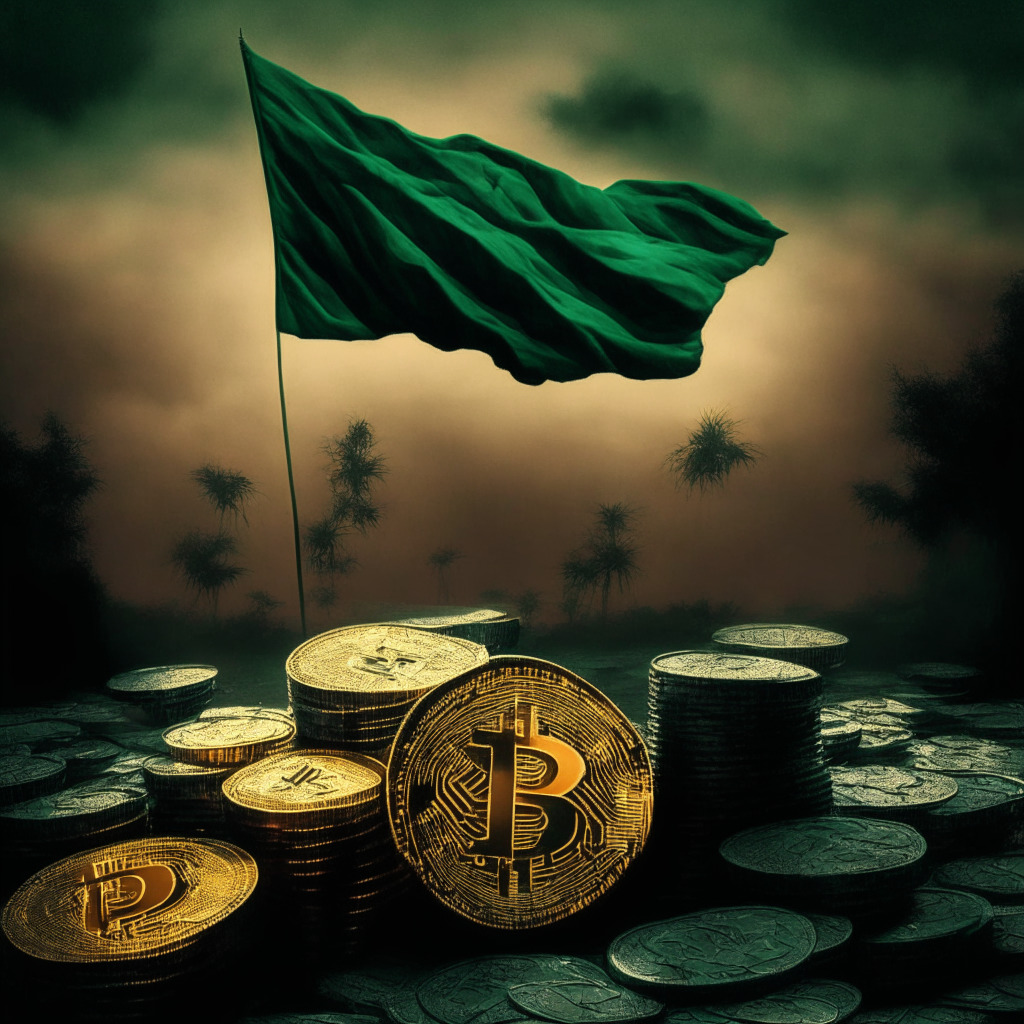At least $27 trillion of assets managed by major U.S. financial institutions, including BlackRock, Fidelity, and Goldman Sachs, are actively seeking to provide clients with exposure to Bitcoin and crypto. However, only a tiny portion would likely be allocated to crypto investments, and skepticism remains regarding the potential impact of institutional interest on the market and technology.
Search Results for: RSI
Riot Platforms’ Massive ASIC Order: Revolutionizing Bitcoin Mining or Threat to Sustainability?
Riot Platforms acquires 33,280 mining rigs from MicroBT, increasing its hashrate capacity to 20.1 EH/s. The machines, designed for immersion cooling systems, will be deployed by Q1 2024. This groundbreaking development occurs as questions about optimizing efficiency and addressing environmental concerns in the mining industry arise.
US Secret Service NFT Collection: Investigative Approach or Creative PR?
The United States Secret Service created a unique nonfungible token (NFT) collection on OpenSea to better understand how NFTs work and display their interest in the broader crypto ecosystem. This initiative aims to make the agency more approachable for the public, especially crypto enthusiasts, and emphasize their dedication to the crypto landscape.
Leveraged Bitcoin ETFs: Expanding Investment Options or Risky Endeavor?
Volatility Shares is set to launch its 2x Bitcoin Strategy ETF (BITX) this week, offering leveraged exposure to bitcoin futures. This eliminates the need for crypto exchange accounts amid legal uncertainties and follows multiple ETF applications, highlighting the importance of regulation and oversight in the evolving cryptocurrency landscape.
US House Adopts ChatGPT Plus: Privacy Concerns, Data Control, and AI Regulation Debate
The US House of Representatives recently adopted regulations allowing members to use only OpenAI’s ChatGPT Plus service due to privacy concerns. It remains unclear what specific privacy features this version offers. These rules signal growing awareness in AI’s potential risks and benefits to data security and privacy.
Breaking the $31,000 Barrier: Analyzing Bitcoin’s Double Top Resistance and Market Predictions
Bitcoin faces a significant challenge with a double top resistance at the $31,000 level, sparking concerns about a potential bearish correction. This article delves into the technical analysis to determine if Bitcoin’s upward momentum will continue or face a minor correction.
Generative AI: Revolutionizing Creativity or Fueling Ethical Dilemmas?
Generative AI, enabling machines to create original content, has impacted industries like art, music, and storytelling but raises ethical concerns, including deepfake content and perpetuating biases. Addressing these issues requires responsible AI development to ensure beneficial and ethical adoption.
AI in Congress: Striking Balance Between Privacy & Innovation in Legislative Process
The U.S. House of Representatives has limited the use of OpenAI’s ChatGPT to ensure privacy preservation, authorizing only the ChatGPT Plus version under specific conditions. As AI technology advances, striking a balance between AI-driven innovations and privacy protection becomes crucial. Establishing a regulatory framework for AI applications is necessary to support its transformative potential without compromising privacy.
Terra Luna Classic Rebounds: Bullish Surge, Six Samurai, and Market Speculation
Terra Luna Classic (LUNC) experiences a rebound with a 2% increase, signaling a bullish trend. A strategic plan for revitalization by the “Six Samurai” group of engineers and a recent recovery above support level are driving factors behind LUNC’s upward momentum and potential further gains.
Cardano Double Bottom Pattern: Bullish Reversal or False Hope? Analyzing Market Indicators
Cardano coin price found support at $0.24, hinting at a higher possibility of a bullish reversal. A double bottom pattern suggests a potential upswing with ADA trading at $0.282. The market remains volatile, and thorough research is essential for making informed cryptocurrency investment decisions.
Crypto Bill Debate: Balancing Investor Protection and Market Innovation
Rep. Maxine Waters seeks input from the US Treasury Department and the SEC on the potential impact of the latest crypto bill proposed by Republicans. She questions the bill’s effectiveness in protecting investors, changing the roles of the SEC and Treasury in the crypto market, and its possible threat to financial market stability. The outcome could significantly shape the future of crypto businesses and industry-wide regulations.
Digital Asset Market Structure: A Path for Crypto Regulation or Hindrance to SEC’s Authority?
House Financial Services Committee Chair Maxine Waters proposed the Digital Asset Market Structure bill, offering US-based digital asset exchanges a pathway for SEC registration, seeking regulatory clarity for the crypto industry. The legislation aims to approve digital securities, commodities, and stablecoins for trading while providing guidelines to distinguish between crypto-based securities and commodities.
Sequoia Capital’s Unwavering Crypto Confidence Despite FTX Exchange Loss: Pros & Cons Explored
Despite losing over $213 million in the FTX exchange collapse, Sequoia Capital’s Alfred Lin maintains confidence in the initial investment decision. Acknowledging risks and disappointments, Sequoia remains optimistic about cryptocurrency and the potential of digital assets.
AI and Crypto Synergy: Unlocking Transparency, Decentralization, and User Control
The integration of AI and crypto has the potential to revolutionize both industries, fostering greater transparency, user control, and decentralization. Industry insiders suggest that AI could open up new opportunities for the blockchain sector, driving its resurgence and bringing additional real-world use cases.
Digital Asset Market Structure Bill: Innovation Boost or Regulatory Threat?
US lawmakers introduced the “Digital Asset Market Structure” bill, proposing a comprehensive framework for digital assets. California Rep. Maxine Waters seeks feedback on the bill’s potential impact on the regulatory landscape and investor protection, highlighting the importance of balancing innovation and investor security.
Recovering $7 Billion from FTX Exchange: Progress, Trust, and the Road Ahead
Debtors recovered about $7 billion from FTX exchange, though still short of $8.7 billion owed to customers. The process of tracking assets was challenging due to commingling and misuse of customer deposits, revealing mismanagement and raising concerns about safety of cryptocurrency exchanges.
FTX Exchange Scandal: Unraveling the $8.7 Billion Debacle and Lessons for Crypto Investors
The FTX team’s recent report reveals the failed exchange owes customers $8.7 billion, with $6.4 billion in misappropriated fiat currency and stablecoins. Highlighting the need for transparency and accountability in the blockchain industry, this case emphasizes the importance of caution and due diligence in the volatile crypto market.
Binance’s European Exodus: Balancing Innovation and Regulation in the Crypto Industry
Binance’s withdrawal of its license application from Austria and recent exits from Netherlands and Cyprus highlight the growing impact of regulatory scrutiny on the crypto industry’s future in Europe, and the ongoing tension between innovation and regulation.
Crypto ETFs Surge in Popularity: Bitcoin Dominates, Altcoins Struggle to Keep Pace
Digital asset investment products recently saw their largest single weekly inflows in a year, mainly driven by bitcoin-related products. This follows nine consecutive weeks of outflows, indicating a shift in market sentiment as high-profile institutions file for exchange-traded funds (ETFs).
Azuki Elementals: The Future of NFTs or a Passing Fad? Blockchain Art and Market Prospects
Azuki announces the Azuki Elementals collection, featuring 20,000 NFTs representing earth, fire, lightning, and water. With varied rarity traits, it’s drawing interest from enthusiasts and collectors. The Dutch Auction offers a starting price of 2 ETH, targeting current holders of Azuki NFTs or BEANZ.
Binance Reverses Privacy Coin Delisting: Unpacking the Decision and Industry Implications
Binance reverses its decision to delist privacy coins in some EU nations, citing revised classification for compliance with EU regulations. The exchange must now follow regulations requiring transaction monitoring for listed coins. Binance’s approach raises questions about its decision-making process and response to regulatory requirements.
Blockchain Revolution for Cross-Border Payments: Pros, Cons, and the Main Conflict
SAP, an enterprise software company, is testing blockchain solutions for cross-border payments using stablecoin USDC, potentially addressing international payment challenges. Despite skepticism, progress continues toward overcoming friction points, reducing costs, and increasing ease of use for global transactions through blockchain technology and stablecoins like USDC.
Ethereum-Compatible ZK Stack: The Open-Source Future of Customized Layer-2s & Layer-3s
The ZK Stack, an open-source framework for developing zk-rollups and layer-3 hyperchains, offers Ethereum-compatible, customizable, and secure solutions for developers prioritizing sovereignty. Its modularity, composability, and adaptability make it ideal for a variety of applications, including gaming, decentralized exchanges, and private permissioned chains.
Bitcoin’s Struggle at $30k: Analyzing Market Structure, MACD Signals, and Exchange Supply
Despite a recent 1.1% loss, Bitcoin’s market structure shows an uptick above all applied moving averages and a short-term descending trendline since mid-April, suggesting buyer dominance. With supply held across exchanges at its lowest since 2017, reduced selling pressure and increasing demand set the stage for a potential rally.
Beware of Fake DeFi Tokens: Protecting Your Wallet from Scams and Address Poisoning
Tres Finance has warned the community about scams involving fake tokens designed to mimic legitimate transactions, targeting wallets containing large amounts of stablecoins. Scammers create similar-looking wallet addresses and tokens, putting users at risk of sending transactions to scammers.
Cryptocurrencies: Gambling or Societal Benefits? Balancing Innovation and Regulation
ECB board member Fabio Panetta argues that cryptocurrencies hold “no societal benefits” and should be treated as gambling, subject to stringent regulatory standards. He emphasizes the importance of regulating crypto-related activities, including DeFi and self-custodial wallets, while acknowledging ongoing efforts such as the new MiCA regulations.
Ethereum’s Battle at $1926: Consolidation, Breakthroughs, and Key Indicators to Watch
Ethereum’s ongoing recovery rally encounters a roadblock at $1926, with sellers and buyers creating a narrow price range between $1867 and $1926. The overall market sentiment leans towards optimism, increasing the likelihood of breaking the $1926 resistance level and resuming Ethereum’s recovery. Traders should monitor key indicators like RSI and EMAs for informed decision-making.
Unexpected Consequences: Nigeria’s 10% Crypto Tax Hurdles and Future Blockchain Prospects
Nigeria’s 10% capital gains tax on digital asset profits faces hurdles due to the country’s uncertain stance on cryptocurrency. The complex nature of crypto transactions, reliance on self-reporting taxes, and central bank’s restrictions contribute to these challenges. Stakeholders call for friendlier policies to ensure market growth.
Swiss Freeze $26M in Crypto Linked to Terraform Labs: Regulatory Scrutiny vs Unintended Consequences
Swiss authorities have frozen approximately $26 million in cryptocurrency linked to Terraform Labs, its founder Kwon Do-hyeong, and other company figures in response to US federal prosecutors’ requests. This follows accusations of fraud, securities law violations, and fallout of Terra’s algorithmic stablecoin UST collapse. The case highlights regulatory scrutiny on cryptocurrency and potential consequences like limiting genuine asset holders’ access.
Freezing Crypto Assets: Terraform Labs Case Exposes Global Crackdown vs. Human Rights Concerns
Swiss prosecutors have frozen $26 million in crypto assets and fiat currency related to Terraform Labs and co-founder Do Kwon, following a request from US authorities. The case highlights regulatory efforts to crack down on crypto-related scams and financial crimes, emphasizing the need for regulatory enforcement and justice in the growing crypto market.
Exploring Project Guardian: Tokenized Digital Assets and the Future of Finance
The Monetary Authority of Singapore, Bank for International Settlements, and major financial institutions collaborate on Project Guardian, which explores designing open and interoperable networks for tokenized digital assets across asset classes like wealth management, fixed income, and foreign exchange. This project raises questions on accessibility, scalability, and regulatory adaptation.
Reviving Terra Classic: Six Samurai’s Bold Move to Reclaim $580M Ecosystem
Six engineers known as the “Six Samurai” have proposed a revival of the Terra Classic ecosystem, aiming to create independence from its disgraced founder, Do Kwon. Their objectives include providing value during the recovery process and contributing to the Terra Classic blockchain as both developers and long-time community members/investors.











